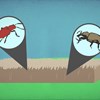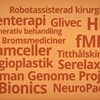mota

Att möta en varmare framtid
Jordens medeltemperatur bara ökar och det får konsekvenser även för oss i Sverige. Hur ska vi förbereda oss för konsekvenserna när klimatet förändras? Vad kan vi göra för att utveckla nya energisl
Cultural Universals and Cultural Differences in Meta-Norms about Peer Punishment
Management and Organization Review, Volume 13, Issue 4 (Special Issue Celebrating and Advancing the Scholarship of Kwok Leung (1958–2015)) Abstract Violators of cooperation norms may be informally punis
After the algorithms: A study of meta-algorithmic judgments and diversity in the hiring process at a large multisite company
Big Data & Society Abstract In recent years, both private and public organizations across contexts have begun implementing AI technologies in their recruitment processes. This transition is typicall

Hur kan vi dö friskare?
Vi har aldrig varit så friska som vi är idag. Men hur kommer det att se ut i framtiden när vi blir allt äldre? Hur kan vården hjälpa oss till ett längre och friskare liv? Vad kan sjukvården göra f

Kasper Lippert-Rasmussen
I am professor in political theory and director of the Centre for the experimental-philosophical study of discrimination (CEPDISC) at University of Aarhus, Denmark. In recent years, I have worked mostly
The knowledge-management complex: From quality registries to national knowledge-driven management in Swedish health care governance
Politics & Policy Abstract This article analyzes the emergence of the Swedish “national system for knowledge-driven management.” We argue that the system is best understood as a meta-instrument that

Maja Fjaestad
I am an expert coordinator at the Centre for Health Crises at KI and Associate Professor at KTH. I previously worked as State Secretary for the Swedish Minister for Health and Social Affairs and before for strategic development and Nordic cooperation at the Prime Minster’s office. I have also worked as researcher at the Division of History of Science, Technology and Environment at KTH. I have also been visiting researcher at the Max Planck Institute for the History of Science in Berlin and Desk officer at the Ministry of Industry and political adviser in energy issues to Minister of Energy, Mona Sahlin.
How Migration Can Benefit Development
Institutet för Framtidsstudiers skriftserie: Framtidens samhälle nr 5, 2006 Migration can make positive contributions to the economic development of poor countries, but needs to be incorporated into th

Folke Tersman
At the Institute for Futures Studies I serve as Deputy Director, supporting both the Director and the managers in Organizational support. Besides working at the Institute for Futures Studies (IFFS) I a
Gustav Nilsonne: Pathways to an open science system: Replacing academic journals
Venue: Institutet för framtidsstudier, Holländargatan 13, 4th floor, Stockholm, and onlineREGISTERResearch seminar with Gustav Nilsonne, Associate Professor of neuroscience. He is active in meta-sciencOpen science enables cumulative knowledge and facilitates discovery. The transition to an open science system is underway, but important roadblocks remain. A decentralised, evolvable network of platforms interconnected by open standards, and governed by the scientific community, is technically feasible. However, academic researchers remain tied to traditional journals not least because assessment of merit is tied to the venue of publication. Ways forward can include redirection of funding from legacy publishing models to new infrastructure and the development of new methods to assess scientific contributions. Concerted action by stakeholders needs to be combined with pluralistic experimentation on policies and interventions to further open science practices.








